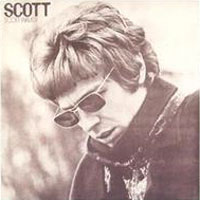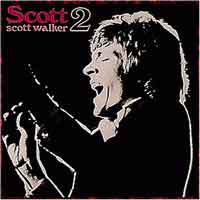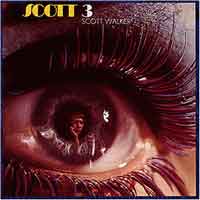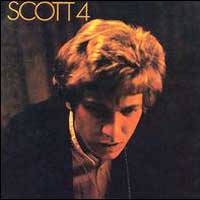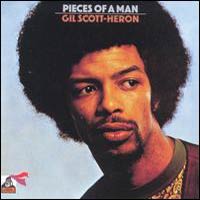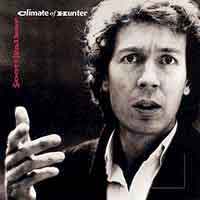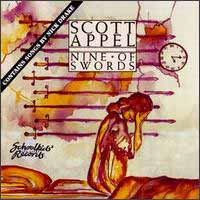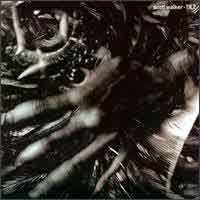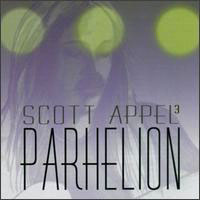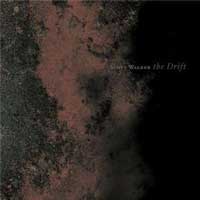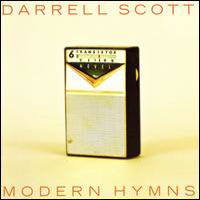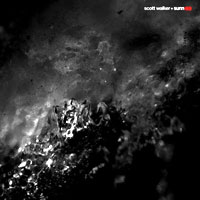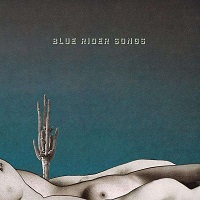Das fängt klasse an: düstere Gitarre, Death Valley-Athmosphäre, das Schlagzeug wirbelt bedrohlich agressiv und schnell, irgendwann die Trompete, dieser luftige, melancholische Chet Baker-style – ein kleines Inferno. Christian Scott zeichnet ein politisches Bild von der bösartigen Haltung der Polizei gegenüber Afroamerikanern, in New Orleans, der Stadt, wo der junge Trompeter aufwuchs. Yesterday You Said Tomorrow ist ein politisch motiviertes Album: Scott versucht den Geist der 60er einzufangen. Musikalisch, indem er einen Hintergrund erzeugt, der die großartigen Künstler dieser Zeit repräsentiert: Miles Davis, John Coltrane, Charles Mingus, aber auch Bob Dylan und Jimi Hendrix. „Die Musik dieser Ära hatte mehr Tiefe“, sagt Scott, und spielt auf das bedrückende soziale und politische Klima dieser Zeit an – problematische Lebensverhältnisse, die Inspiration für Miles und Co? Christian Scott ist mit seinen jungen 26 Jahren erstaunlich retrospektiv. Verehrung und Enthusiasmus für seine musikalischen Vorbilder, zu denen er vermutlich eine Seelenverwandtschaft empfindet, haben ihn zu dieser sehr persönlichen Quintett-Aufnahme animiert. Scott kritisiert den Strafvollzug in den U.S.A., die ablehnende Haltung gegenüber Homosexuellen, thematisiert politischen Negativismus der ewigen Nörgler. Er tut das konkret in den Kompositionen, aber man muss es wissen, um es zu hören.
Yesterday You Said Tomorrow ist ein starkes, zeitgemäßes Jazzalbum des hochtalentierten Musikers, der mit Intelligenz und Hingabe überzeugt, dem es gelingt, eine ehrliche Aussage zu machen, in einer zupackenden, beherzten Band, die so intim auftritt, dass die Musik unweigerlich berührt. Es ist übrigens bereits Scotts 5. Album als Bandleader. Erstaunlich, aber vielleicht auch ein gebührliches Tempo für einen Überflieger, der bereits mit 13 in einer Profiband spielte, und der an der Berklee School of Music innerhalb von 2 Jahren 2 akademische Abschlüsse erwarb!?
(Katharina Lohmann, amazon.de)
Like Anthem, Christian Scott's 2007 post-Katrina meditation, Yesterday You Said Tomorrow is more than a collection of tunes; it's a statement. Scott, who was 26 at the time of this album's release, spells out his intention in the liner notes, where he explains that — and he cites the 1960s work of Coltrane, Miles, Hendrix, Dylan, and Mingus as reference points — he wanted to "create a record that has all the qualities of the documents of that era as they relate to our time by creating a palette that referenced the depth and conviction of the '60s in the context of subject matter and sound, but done in a way that illuminates the fact that my generation has had the opportunity to study the contributions of our predecessors, thus making our decision making process musically different." That's a pretty lofty goal (and a very long sentence), and a challenge to achieve, particularly with instrumental music. Scott pulls it off with aplomb though — recorded by Rudy Van Gelder and produced by Chris Dunn and Scott, Yesterday You Said Tomorrow is very much a contemporary jazz album, yet it frequently touches down in that earlier, headier era, both sonically and in a more visceral, emotional sense. It's impossible, for example, not to notice the tonal similarities to Miles' work of the late '60s in Scott's trumpet playing, and the pacing and feisty overall attitude of several tracks is reminiscent of the more contemplative music of that time.
Yet the rhythms and the setting belong to the present, with subtle and not-so-subtle influences from hip-hop, funk, and electronica finding their way into the mix. "K.K.P.D." (which Scott says stands for Ku Klux Police Department) launches it with a minute-plus of Matthew Stevens' swampy guitar run and Jamire Williams' manic drumming before Scott steps in to blow his first coolly muted solo. The piece becomes more aggressive as it unfolds, Milton Fletcher, Jr.'s piano and Kristopher Keith Funn's bass sending sparks in directions that often lead away from those Scott has chosen. "The Eraser," a song adapted from Radiohead frontman Thom Yorke's solo album of the same name, is smoother than the source material yet it's pervaded by a deliberate, somewhat unsettling scratchiness that signals the listener not to get too comfortable. The titles of some of the other tracks alone — "Angola, LA & the 13th Amendment," "Jenacide (The Inevitable Rise and Fall of the Bloodless Revolution)," "American't" — serve notice that this is a record that means business. On the latter, aimed at the negativity presently pervasive in the nation, Scott takes his time developing the melodic theme and musing introspectively as the other musicians build a solid foundation under him, while "Angola…" is a brooding, if occasionally angry exposition that doubles as a showcase for Stevens' tasteful licks. Stevens is also prominent throughout the record's closer, which he co-wrote with Scott, "The Roe Effect (Refrain in F# Minor)," a relatively stately, albeit at times unnerving commentary on the abortion issue. The track utilizes a backward recording technique in its latter half, ostensibly to juxtapose the opposing viewpoints on the charged issue, but also, one supposes, to remind the listener that the open-mindedness that goes into creating music as moving and commanding as this is also something we need to keep in the forefront as we find our way through these troubled times.
(by Jeff Tamarkin, All Music Guide)
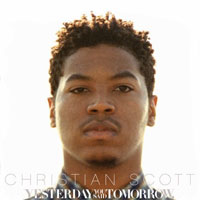 #6 in Jahresliste
#6 in Jahresliste  Plattentipp
Plattentipp 


